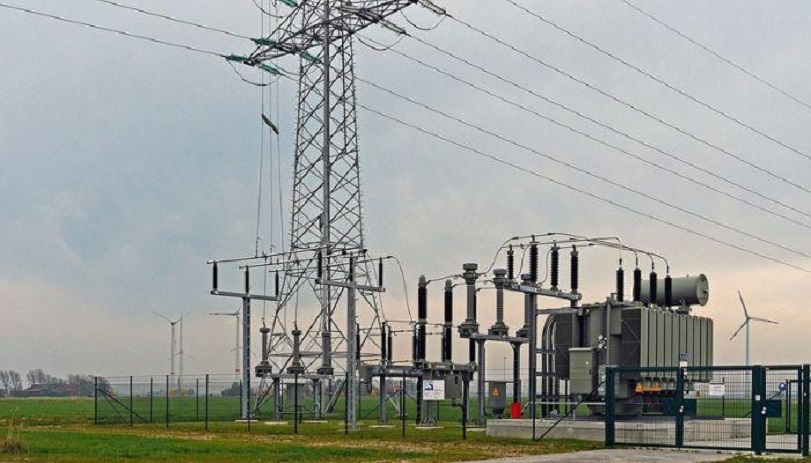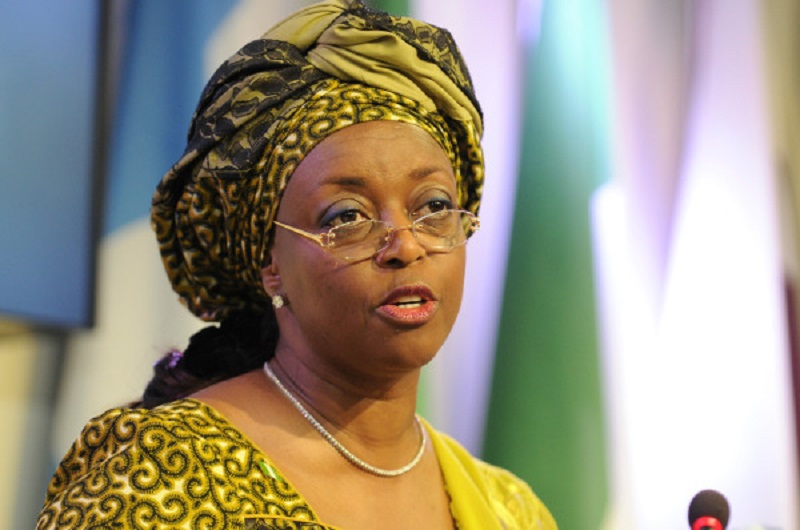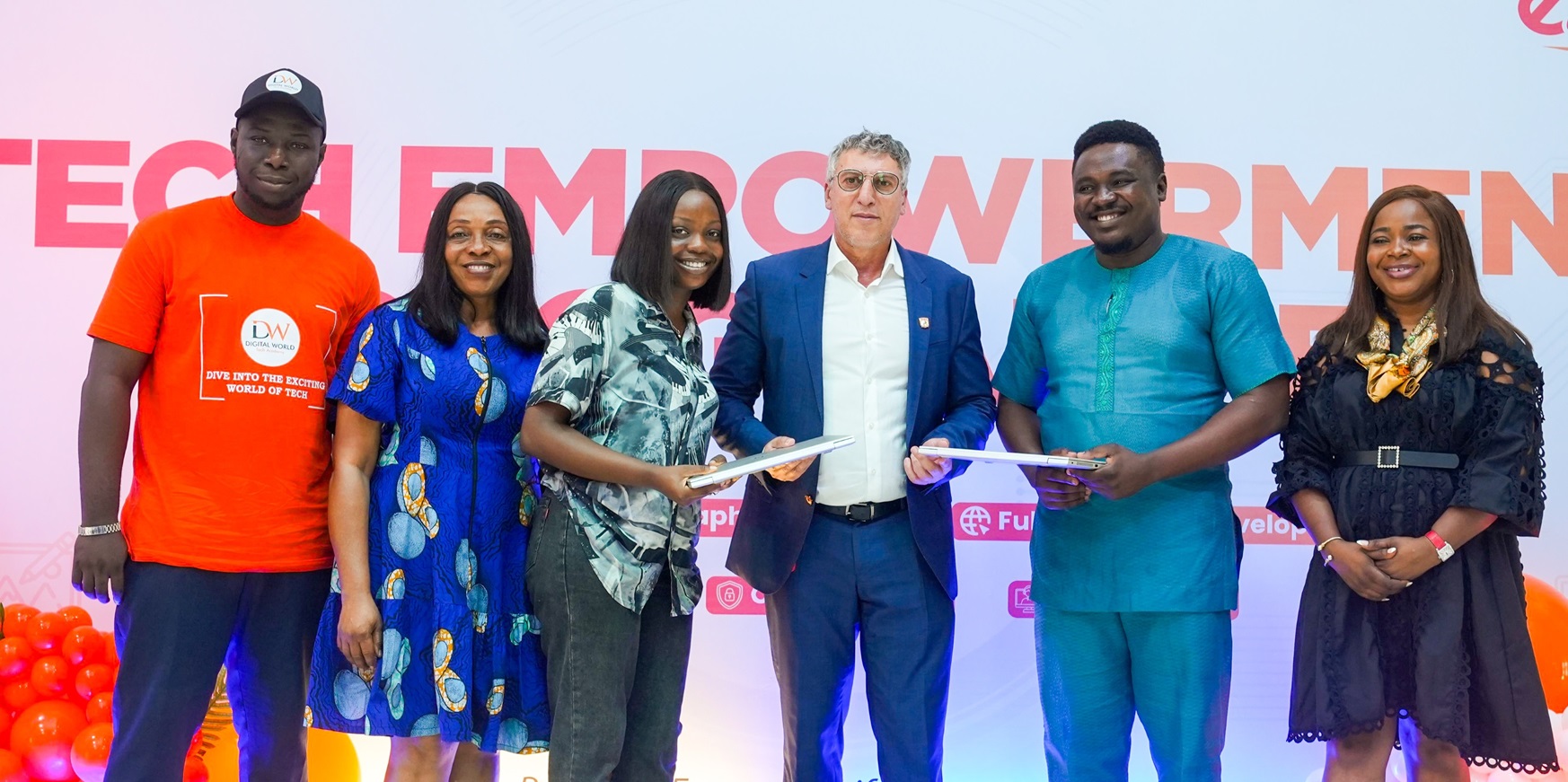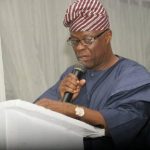General
PwC Proposes Key Amendments to Nigeria Electricity Act 2023

By Adedapo Adesanya
PricewaterhouseCooper (PwC) Nigeria has commended the country’s move towards fixing its copious electricity challenges with the Electricity Act 2023 and proposed key amendments that will ensure the issues are faced head-on,
At the 14th edition of its Annual Power and Utilities Roundtable, with the theme The Electricity Act 2023: Powering Nigeria, the Partner and Energy, Utilities and Resources Leader at PwC Nigeria, Mr Pedro Omontuemhen, noted that, “The 2023 power roundtable’s timing coincides with the ongoing COP 28 in Dubai, highlighting the urgent need for continued action on climate change especially in the area of renewable energy.”
“The Electricity Act can play a pivotal role in addressing this challenge by guiding balancing the utilisation of our natural resources with the reduction of carbon emissions while showing how we can generate, transmit, and distribute adequate power to meet Nigeria’s energy needs,” he added.
He noted that “discussions at the roundtable have shown that power sector stakeholders welcome the Electricity Act as a good step, especially for consolidating the laws governing the Nigerian electricity supply industry and establishing a policy framework that empowers state governments and investors.
However, he stressed that there was more to be done to enhance the legislation and make it more responsive to the realities of industry practitioners, adding that the Act must provide the policy framework necessary to implement practical solutions to address the metering gap.
In his keynote address, Mr Bimbola Banjo, Partner and Finance Advisory Leader, PwC Nigeria, elaborated on the key provisions of the Act, including the separation of distribution from supply operations, incentivising renewable energy, the positioning of NERC as the apex regulator, the establishment of the Power Consumer Assistance Fund (PCAF), state government’s adoption of the Electricity Act, the establishment of N-HYPPADEC, and the definition of offences and penalties.
“While there is an urgency to adopt the Electricity Act, states must exercise caution and assess their readiness for implementation. The process of adoption will incur significant costs, including engaging legal and commercial advisors, and will require substantial investments in technology, human resources, and the establishment of state-level structures.
“Before proceeding, states should conduct a comprehensive evaluation of their electricity market and network infrastructure, accompanied by detailed technical and commercial feasibility studies. This rigorous assessment will ensure that states are adequately prepared to implement the Electricity Act effectively and reap its full benefits,” he added.
The Electricity Act fosters collaboration among various stakeholders, including state governments and federal government ministries. These partnerships and active state participation will lead to positive outcomes, such as the establishment of suitable investment vehicles, effective fundraising strategies, robust enforcement mechanisms, and enhanced knowledge exchange.
The roundtable’s panel of experienced power sector stakeholders discussed additional measures that will enhance the Electricity Act towards achieving its objectives.
For Mr Akinyemi Akingbade, Partner, Energy, Utilities and Resources, PwC Nigeria, who moderated the panel session, there’s a need to consider the role the Electricity Act can play in stimulating local manufacturing of electricity assets, such as meters, and fostering domestic investments within Nigeria’s power value chain, which will help job creation and economic growth.
Mr Razaq Obe noted that the Electricity Act has already started fostering collaborations in the sector. For example, there’s a forum of state commissioners for energy, which is a first in Nigeria’s history. He indicated the willingness of state governments to continue to collaborate to enhance the implementation of the Electricity Act.
Addressing the misconception surrounding reluctance to provide meters, Mrs Soetan emphasised that DisCos, despite facing cost challenges, believe in the benefits of metering for improved revenue collection.
She stressed that DisCos are actively seeking collaborations with various stakeholders to increase meter deployment for their customers. The collaboration between DisCOs and state governments to deter energy theft will be key to achieving the Electricity Act’s objectives.
Mr Obi-Chukwu expressed enthusiasm for the Electricity Act’s potential to promote renewable energy development in Nigeria, bringing about widespread adoption of solar energy in residential and community settings. Additionally, he emphasised the importance of digital transformation and data sharing to facilitate innovation.
Adding his input, Mr Mueller emphasised the need for a clear and effective dispute resolution mechanism to address regulatory disputes and prevent inconsistencies in regulatory decisions. He highlighted the current potential for double regulation and abuse of power.
Mr Akpeneye noted that enhancing the Electricity Act should include establishing a single, comprehensive law governing the entire power sector. While electricity distribution should remain within the purview of state governments, a centralised law is crucial to ensure consistency and prevent conflicts. The Electricity Act should clearly define the roles and responsibilities of regulators, establish industry standards, and outline how stakeholders should collaborate effectively.
General
Alison-Madueke Denies Wrong Doing as Prosecutors Present Evidence

By Adedapo Adesanya
Embattled former Nigerian Minister of Petroleum, Mrs Diezani Alison-Madueke, returned to court in London on Monday, denying wrongdoing as prosecutors presented evidence for an alleged bribery.
It was recently reported that Mrs Alison-Madueke, once president of the Organisation of the Petroleum Exporting Countries (OPEC), received cash and luxury benefits in exchange for influence over oil and gas contracts when she was a minister in the cabinet of former President Goodluck Jonathan.
She has denied the claims repeatedly.
In the latest development in her trial, jurors in the British court today heard testimony from a luxury furnishings retailer and a former housekeeper, as prosecutors sought to show how high-end purchases and property use were allegedly routed through intermediaries.
The 65-year-old is accused of multiple bribery counts stemming from a years-long investigation.
The alleged offences occurred between 2011 and 2015, when she was Nigeria’s oil minister but maintained a UK address.
The UK National Crime Agency (NCA), which targets international and serious and organised crime, accused her of receiving the bribes in Britain.
Mrs Alison-Madueke is accused of accepting “financial or other advantages” from individuals linked to the Atlantic Energy and SPOG Petrochemical groups.
Both companies secured contracts with the then Nigerian National Petroleum Corporation (NNPC) or its subsidiaries, according to the prosecution.
The former minister is also said to have received £100,000 ($137,000) in cash, chauffeur-driven cars, a private jet flight to Nigeria and refurbishment work and staff costs at several London properties.
Other counts allege she received school fees for her son, products from high-end shops such as London’s Harrods department store and Louis Vuitton, and further private jet flights.
Mrs Alison-Madueke has been involved in numerous legal cases globally, including in the United States.
She has been on bail in Britain since she was arrested in October 2015.
In 2023, she was formally charged with accepting bribes, which she has denied.
General
Egbin Power Unveils Tech Empowerment Scheme for Youth Employability, Others

By Modupe Gbadeyanka
An initiative designed to encourage entrepreneurship, expand access to opportunities in the digital economy, and improve the employability of young people in its host communities has been launched by Egbin Power Plc.
The tech-based empowerment programme will equip young persons from Egbin, Ijede and Ipakan areas of Lagos State with digital skills.
The chief executive of the power-generating firm, Mr Mokhtar Bounour, described the initiative as part of the company’s Personal Corporate Social Responsibility (PCSR) efforts, reflecting its commitment to inclusive and sustainable development, adding that its responsibilities extend beyond electricity generation to empowering people in surrounding communities.
“In today’s digital age, technology is no longer optional but a critical driver of economic inclusion and growth,” Mr Bounour said, noting that deliberate interventions were needed to bridge digital gaps and prevent uneven development.
He explained that when communities are excluded from the digital economy, development becomes uneven and unsustainable, reinforcing the need for deliberate interventions that bridge digital gaps.
He pointed out that, “The Empowerment Programme is designed to address this gap by providing young people in Egbin, Ijede and Ipakan with access to practical and in-demand digital skills that can improve employability, foster entrepreneurship, and create new economic opportunities within their communities.”
The first cohort brings together beneficiaries from the three communities for structured training in ICT fundamentals, graphic design, full-stack web development, digital marketing, cybersecurity and data analytics. The programme combines classroom instruction with hands-on learning.
Participants were selected through a screening process that assessed curiosity, determination and willingness to learn, the company said. Beyond technical training, the programme also includes workplace skills such as ethics, problem-solving, collaboration, professionalism and digital responsibility.
Mr Bounour urged beneficiaries to act as ambassadors of the initiative and demonstrate the values of integrity, discipline and service, saying their progress would serve as evidence that strategic corporate responsibility can deliver measurable impact.
He encouraged participants to recognise their broader responsibility to their communities, urging them to learn with character, pay their knowledge forward, mentor others, and use their skills to solve real local problems. He noted that the true legacy of the programme will be the ripple effects it creates through shared success and communal growth.
The launch of the Tech Empowerment Programme underscores Egbin Power’s continued commitment to sustainable community development, trust-building, and long-term value creation.
The company reaffirmed its dedication to investing strategically in people, strengthening host communities, and contributing meaningfully to Nigeria’s digital and economic future.
General
NPA Working to Eliminate Manual Bottlenecks, Synchronise Operations Across Seaports

By Adedapo Adesanya
The managing director of the Nigerian Ports Authority (NPA), Mr Abubakar Dantsoho, has said the organisation is in collaboration with the International Maritime Organisation (IMO) to deploy the Port Community System (PCS) will eliminate manual bottlenecks and synchronise operations across Nigeria’s seaports.
Mr Dantsoho disclosed this at a recent three-day high-level stakeholder engagement in Lagos titled Achieving a 7-day Cargo Dwell Time, organised by the Presidential Enabling Business Environment Council (PEBEC) in collaboration with the NPA.
The engagement convened the Ports and Customs Efficiency Committee (PCEC) under the Business Environment Enhancement Programme Accelerator (BEEPA) framework, focusing on streamlining port processes to improve efficiency and ease of doing business.
According to the NPA boss, the PCS will serve as the digital backbone of the National Single Window, enabling seamless information exchange among port stakeholders and reducing delays caused by manual documentation.
On her part, the director-general of PEBEC, Mrs Zahrah Mustapha, said the session was designed to go beyond identifying challenges and focus on implementing long-overdue practical solutions.
“Nigeria loses significantly every day due to operational inefficiencies,” Mrs Mustapha said. “These are not just numbers; they represent missed opportunities, jobs not created, and delayed economic growth. This reform is about resilience and unlocking the nation’s economic potential.”
She added that the initiative brings together government regulators and private-sector stakeholders to promote transparency and accountability, with the ultimate objective of reducing cargo dwell time and improving vessel turnaround time.
Recall that the NPA recorded a 100 per cent success rate in PEBEC reforms, ranking fifth among government agencies in 2025 with an 84.2 per cent compliance rating.
Outcomes from the stakeholder engagement are expected to be implemented in the coming months. By addressing operational gaps identified during port inspections, the NPA and PEBEC aim to build a more competitive maritime environment that attracts investment and facilitates seamless trade.
-

 Feature/OPED6 years ago
Feature/OPED6 years agoDavos was Different this year
-
Travel/Tourism9 years ago
Lagos Seals Western Lodge Hotel In Ikorodu
-

 Showbiz3 years ago
Showbiz3 years agoEstranged Lover Releases Videos of Empress Njamah Bathing
-

 Banking8 years ago
Banking8 years agoSort Codes of GTBank Branches in Nigeria
-

 Economy3 years ago
Economy3 years agoSubsidy Removal: CNG at N130 Per Litre Cheaper Than Petrol—IPMAN
-

 Banking3 years ago
Banking3 years agoSort Codes of UBA Branches in Nigeria
-

 Banking3 years ago
Banking3 years agoFirst Bank Announces Planned Downtime
-

 Sports3 years ago
Sports3 years agoHighest Paid Nigerian Footballer – How Much Do Nigerian Footballers Earn












